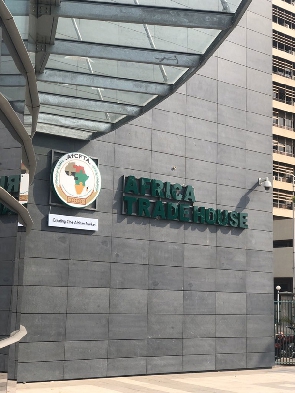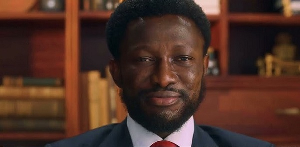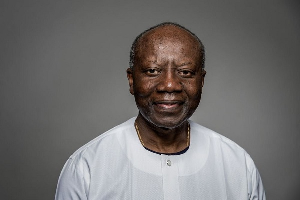The ongoing dispute between Ghanaian and Nigerian traders, which is involving their respective governments as well, is now threatening to curb intra ECOWAS trade volumes as a whole as manufacturers and traders in West Africa’s two largest economies have started looking to importation sources and export markets in other parts of Africa as duty free trade across the entire continent is set to commence from January 2021.
Until now, goods manufactured in ECOWAS member states could be exported to other members of the sub-regional grouping without import duties being charged whereas exports to countries in the rest of Africa have been subject to import duties. This has made intra-ECOWAS trade preferable to trade between ECOWAS members and the rest of Africa. However the impending commencement of the African Continental Free Trade Agreement (AfCTA) will remove this cost advantage.
Even though geographical proximity will supposedly still give commerce within the sub region price advantages, in practice the deep problems in actually implementing the ECOWAS trade protocols are convincing both importers and exporters to seek alternative duty free markets elsewhere around the continent once AfCTA commences at the beginning of next year.
At the centre of this unfolding stance is the trade dispute between Ghana and Nigeria.
Currently, on the insistence of Ghanaian local traders operating through the Ghana Union of Traders Associations (GUTA), government has closed down Nigerian retail shops in Ghana – and those of some other ECOWAS nationals as well – on the basis that their operations conflict with Ghana’s investment code which reserves small scale retailing activities for its indigenes.
This has attracted the ire of Nigerian traders and their government who insist that ECOWAS protocols demand that they be allowed to operate.
Conversely, the Nigerian government’s occasional closure of its borders to exports from other ECOWAS member states on the basis that they do not conform to rules of origin regulations, has equally irritated those countries affected, particularly Ghana which is the largest West African exporter of semi processed and manufactured goods to Nigeria.
Unfortunately media reports in both Ghana and Nigeria have exaggerated the actions of the other and more importantly failed to explain the rationale behind their actions. This in turn has persuaded the respective governments, for populist political reasons, to threaten or actually implement actions against both traders and other people of the other country.
For example the Nigerian press has been reporting the deportation of Nigerians from Ghana for alleged prostitution and cyber crime in particular and the Ghanaian press has been reporting retaliatory actions in Nigeria.
Instructively, the Nigerian government recently threatened that it would begin enforcing its domestic immigration laws to the hilt, even where they conflict with ECOWAS protocols unlike its hitherto stance where the latter held sway.
Consequently, manufacturers and traders from both countries are coming to the conclusion that duty free markets opening up further afield around Africa, through AfCTA are better options in practical terms.
Gbenga Obideyi, Director of Trade at the ECOWAS Secretariat warned recently that “the AfCTA agreement may have far reaching implications for the ECOWAS trade objectives, including the Common External Tariff and the ECOWAS Trade Liberalization Scheme” as attention turns from intra ECOWAS trade to wider pan African trade.
However, international trade analysts warn that this may not be the case because problems similar to the ones afflicting ECOWAS may also occur under AfCTA.
Indeed it is instructive that at the time the commencement of the single market was postponed due to the outbreak of the COVID-19 pandemic, agreements had not been reached by the member states on a common set of rules of origin for eligible goods, a dispute resolution mechanism and trade remedies.
There are also still disagreements on which types of goods should comprise the 10 percent not initially covered under the agreement.
However ECOWAS official position is to fully support AfCTA, which is more comprehensive than the ECOWAS trade protocols – it covers aspects of trade such as competition policy, countervailing measures and sanitary measures which the ECOWAS protocols do not.
Business News of Wednesday, 12 August 2020
Source: goldstreetbusiness.com













